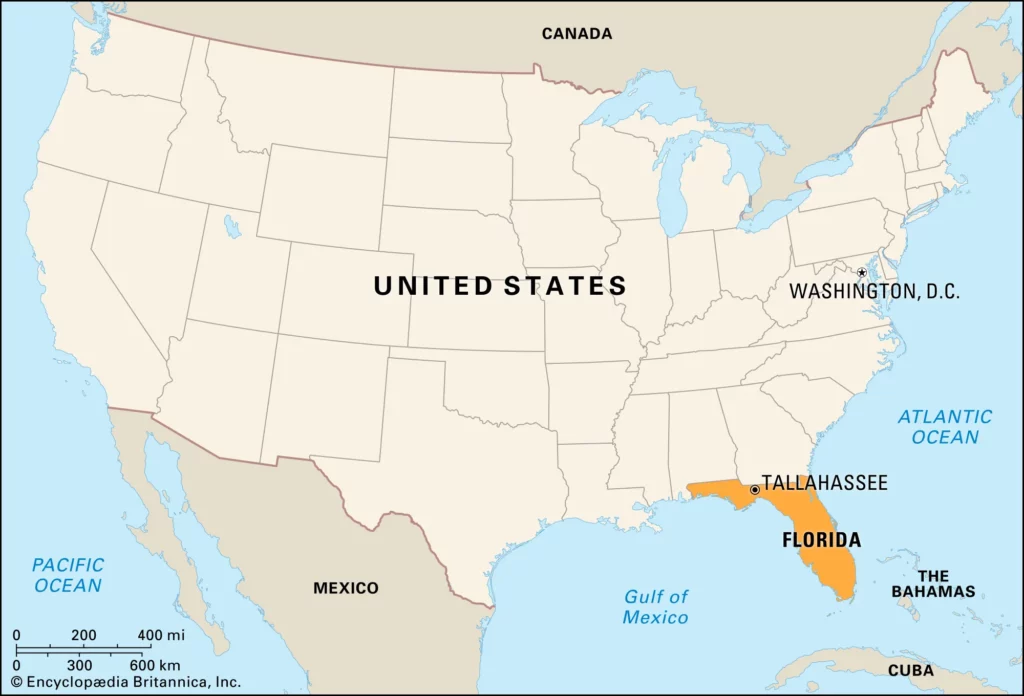
What is a Registered Agent in Florida?
In Florida, a Registered Agent acts as the official point of contact for a business entity, such as a corporation, limited liability company (LLC), partnership, or any other legal entity registered with the state. This agent is responsible for receiving important legal and tax documents on behalf of the business, including service of process (legal action), government communications, and notifications from the Secretary of State. The role of a Registered Agent ensures that there’s a reliable way for the government and other parties to communicate with a business.
Here are some key points about Registered Agents in Florida:
Who Can Be a Registered Agent: A Registered Agent can be an individual who resides in Florida or a business entity authorized to do business in Florida with a physical address in the state (known as a registered office). The agent must be available during normal business hours to receive documents.
Legal Compliance: Having a Registered Agent is a legal requirement for doing business in Florida. It ensures that the business can be legally contacted if necessary.
Privacy and Efficiency: For some businesses, using a Registered Agent service (a third-party provider) can help maintain privacy and ensure that important documents are handled efficiently and promptly, reducing the risk of missed deadlines.
Changing a Registered Agent: If a business wishes to change its Registered Agent, it can do so by filing the appropriate forms with the Florida Secretary of State and paying any required fee.
Public Record: The name and address of a business’s Registered Agent are public record and can be searched through the Secretary of State’s website. This transparency helps maintain trust in the business environment.
How can I determine if my Florida business needs a Registered Agent?
In Florida, the requirement for a Registered Agent applies to most formal business entities. Here are a few key factors to help you determine if your Florida business needs a Registered Agent:
Business Type: If your business is registered as a corporation, limited liability company (LLC), limited partnership (LP), limited liability partnership (LLP), or any other type of formal business entity with the Florida Division of Corporations, you are generally required to have a Registered Agent.
Foreign Entity: If your business is formed in another state or jurisdiction but operates in Florida (known as a foreign entity), you may also be required to have a Registered Agent in Florida. This is usually necessary for the purpose of service of process and receiving official government documents.
Compliance: Maintaining a Registered Agent is typically a legal requirement to ensure that there is a reliable way for the state to communicate with and send legal documents to a business. It includes legal notices, tax documents, and important government correspondence.
If your business falls into any of the categories mentioned above, it is likely mandatory to designate a Registered Agent in Florida. The agent must have a physical address in Florida (P.O. Boxes are not sufficient) and be available during normal business hours to receive documents on behalf of the business.
If your business is a sole proprietorship or general partnership, the requirement for a Registered Agent may not apply in the same way as it does for registered entities. However, if these businesses choose to register with the state or need to maintain a professional presence, they may benefit from appointing a Registered Agent to handle legal and official communications.
If you are uncertain about your business’s status or whether it requires a Registered Agent in Florida, it is advisable to consult with a legal advisor or contact the Florida Department of State for specific guidance tailored to your situation.
What does a Registered Agent do for a Florida business?

A Registered Agent serves as the official liaison between a Florida business and the state. The role encompasses several critical functions vital for ensuring legal compliance and maintaining the business’s good standing with the state. Here is a breakdown of the primary responsibilities:
Service of Process: The Registered Agent is responsible for receiving legal documents on behalf of the business. This includes lawsuits, summons, and other legal notices. The agent ensures that the business responds to legal actions in a timely manner.
Government Documents: Registered Agents receive official government communications, including compliance notices, tax forms, and renewal notifications. This ensures the business remains up-to-date with filing requirements and deadlines.
Privacy and Discretion: By having a Registered Agent, a business owner can maintain a level of privacy, as the agent’s address is used on public records instead of the business owner’s personal or office address.
Operational Flexibility: With a Registered Agent in place, business owners have the flexibility to manage their business without being tied down to a physical location, confident in the knowledge that their legal and official documents are being handled professionally.
Effectively, a Registered Agent acts as a safeguard, ensuring that the business adheres to state laws and regulations by managing critical documents that affect the business’s legal and operational status. This role is pivotal in helping businesses avoid penalties for non-compliance and ensures they remain informed about important government requirements.
Are there any legal requirements specific to Florida when selecting a Registered Agent for my business?
Yes, Florida has specific legal requirements that must be met when selecting a Registered Agent for your business. Understanding these requirements is crucial for ensuring your business remains in compliance with state laws. Here is an overview of the key legal stipulations:
Physical Presence: The Registered Agent must have a physical street address in Florida. This address, also known as the registered office, cannot be a P.O. Box. It is where the agent must be available to receive legal documents during normal business hours.
Availability: The Registered Agent must be available at the registered office during regular business hours to accept legal documents and official notices on behalf of the business.
Eligibility: A Registered Agent in Florida can be either an individual resident of the state or a business entity, such as a corporation or limited liability company (LLC), authorized to conduct business in Florida. If the agent is a business entity, it must have an office physically located in Florida.
Consent: While Florida laws do not explicitly require the Registered Agent’s written consent for appointment, it is a good practice to have consent to ensure the agent is willing and prepared to fulfill these responsibilities.
Disclosure on Forms: The name and address of the Registered Agent must be included in the business entity’s formation documents (for new businesses) or on the change of Registered Agent form (if changing agents) filed with the Florida Department of State.
Meeting these criteria is essential not just for legal adherence but also for ensuring that your business can reliably respond to legal actions and remain informed about important compliance requirements. Failure to comply with these requirements can result in the inability to legally operate your business within the state of Florida.
How often should a Florida business update its Registered Agent information?

A Florida business should update its Registered Agent information whenever there is a change in the agent’s name, address, or availability to serve in this capacity. There is no set schedule for how frequently these updates need to occur; rather, updates should be made as needed to ensure the information on file with the Florida Department of State remains current and accurate.
Key instances when a business should update its Registered Agent information include:
Change of Registered Agent: If the business decides to change its Registered Agent to another individual or service, it must file an update with the state.
Change of Address: If the Registered Agent’s address changes (even if the agent remains the same), it’s essential to update this information to ensure the business can be reached for legal documents and notifications.
Change in Availability: If the Registered Agent can no longer fulfill their duties during normal business hours—for example, due to a job change or relocation—it’s necessary to designate a new agent who can meet these requirements.
To update Registered Agent information in Florida, the business must file the appropriate form with the Florida Department of State, Division of Corporations, and pay any required fees associated with the filing.
Maintaining accurate Registered Agent information is crucial for the legal operation of your business, as it ensures you receive important legal and tax documents without delay. Regularly reviewing and timely updating this information helps your business stay in compliance with Florida law.
What is the easiest way to get a Registered Agent in Florida?
Finding a reliable Registered Agent is a critical step for any business operating in Florida. The easiest and most convenient way to secure a Registered Agent is through a professional service that specializes in providing comprehensive support and compliance assistance. One such provider that stands out for its quality of service, reliability, and value is FormPros.
Here’s why choosing FormPros for your Registered Agent needs can be an excellent decision for your Florida business:
Expertise: FormPros offers expertise in managing legal documents and compliance requirements, ensuring your business meets all Florida state mandates efficiently.
Convenience: With FormPros, you can set up your Registered Agent service online in just a few minutes, eliminating the hassle and saving you valuable time.
Reliability: A Registered Agent from FormPros provides peace of mind, ensuring that important legal and tax documents are handled professionally and promptly.
Value: Offering competitive pricing, FormPros delivers outstanding service without compromising quality, making it an excellent investment for your business’s legal and compliance needs.
Privacy Protection: Utilizing a Registered Agent service like FormPros helps protect your personal privacy by having the agent’s address listed in public records instead of your own.
Choosing FormPros as your Registered Agent service in Florida not only simplifies the process of staying compliant with state regulations but also helps mitigate risks associated with missing critical legal notices. With our expertise and dedicated support, you can focus more on growing your business while leaving the complexities of legal compliance to trusted professionals.
To learn more about how FormPros can serve as your reliable Registered Agent in Florida, visit our website and explore a range of services designed to support your business’s success.
How do I change a Registered Agent in Florida?

Changing a Registered Agent in Florida is a straightforward process, but it requires following specific steps to ensure the change is recognized legally by the Florida Department of State Division of Corporations. Here’s how you can make the change:
Obtain Consent: Before formally designating a new Registered Agent, it’s recommended to obtain consent from the new agent, ensuring they are willing and able to fulfill the responsibilities required of them.
Complete the Required Form: Fill out the “Statement of Change of Registered Office” or “Registered Agent, or Both (CR2E047)” form. This form requires you to provide information about your business, the current Registered Agent, and details about the new Registered Agent.
File the Form: Once completed, submit the form to the Florida Department of State. This can typically be done online via the Sunbiz website, by mail, or in person. Filing online is the fastest option and ensures quick processing.
Pay the Filing Fee: There is a nominal fee associated with filing a change of Registered Agent in Florida. The fee must be paid upon submission of the form. Please check the latest fees on the Florida Department of State’s website or the online filing portal, as fees can change.
Confirmation: After filing, you will receive a confirmation that your change of Registered Agent has been processed. Keep this confirmation for your records to verify that the state’s records are up-to-date.
It’s important to ensure that the new Registered Agent meets all legal requirements specific to Florida, including having a physical address within the state. Once the change is processed, the new Registered Agent will officially be responsible for receiving all legal and tax documents, notices of lawsuits, and other important government communications on behalf of your Florida business.
Regularly review your Registered Agent details to make sure they remain accurate and up to date. This not only helps in staying compliant with Florida regulations but also ensures that your business can be reliably contacted for official and legal matters.
Can I be my own Registered Agent in Florida?
Yes, in Florida, you can serve as your own Registered Agent for your business. However, there are specific requirements that you must meet to fulfill this role legally:
Physical Address: You must have a physical street address in Florida. This address will be where you are available to receive service of process and other important legal and government documents during normal business hours. A P.O. Box is not considered an acceptable address for this purpose.
Availability: You must be available at the provided physical address during normal business hours to receive legal documents and notifications on behalf of your business.
Compliance: You must comply with all legal requirements and regulations required of Registered Agents in Florida, including accepting legal and tax documents and ensuring they are handled appropriately.
Becoming your own Registered Agent can offer convenience and cost savings, but it’s important to carefully consider the responsibilities associated with this role. You need to ensure that you are always available during business hours to receive any documents. This requirement can limit your flexibility in terms of travel or working outside the office.
Additionally, it’s vital to consider the privacy implications. As a Registered Agent, your address will be listed on public records, which may not be desirable for everyone. If privacy or flexibility are significant concerns, you might find it beneficial to appoint a professional Registered Agent service that can provide the necessary support and ensure compliance with state regulations.
Is it possible to appoint an out-of-state Registered Agent for your Florida business?
No, Florida law requires that your Registered Agent must have a physical street address within the state of Florida. This means appointing an out-of-state individual or company to serve as your Registered Agent does not meet the state’s legal requirements. The primary reasons for this stipulation include:
Service of Process: The Registered Agent must be available at a known Florida location to receive legal documents, such as lawsuits, in person on behalf of the business.
State Compliance: Florida’s requirement ensures that the Registered Agent is within quick reach should the state need to communicate legal or tax-related documents, ensuring compliance with state regulations and legal standards.
However, if you are considering an out-of-state individual or a company that specializes in Registered Agent services, they can serve as your agent if they have a physical office located in Florida that meets the requirements for serving as a Registered Office. Many national Registered Agent services maintain offices in multiple states precisely for this purpose, allowing them to serve as agents in Florida as well as other states where they have a physical presence.
In summary, while the agent itself does not necessarily need to be domiciled in Florida, they must have a physical location in the state where they can reliably receive documents during normal business hours, thereby fulfilling the legal requirements of being a Registered Agent in Florida.
Are Registered Agents from Florida responsible for any fees or taxes?

In their role as Registered Agents for Florida businesses, the agents themselves are not directly responsible for paying fees or taxes related to the business’s operations or its registration with the state. However, there are certain nuances and responsibilities related to costs that are worth understanding:
Service Fees: If the Registered Agent is a professional service or individual offering their services for a fee, businesses will pay the Registered Agent or the service provider for acting in this capacity. These fees are for the service of being available to receive legal documents and do not include business taxes or state registration fees.
Filing Fees: When a business appoints or changes its Registered Agent, it must file the necessary forms with the Florida Department of State and pay any applicable filing fees. It’s the responsibility of the business, not the Registered Agent, to ensure these fees are paid.
Business Taxes and Annual Reports: Responsibility for state taxes, annual report filing fees, and any other state-mandated fees rests with the business itself, not the Registered Agent. The agent’s role may include reminding the business of these obligations if such services are part of the agreement.
It’s important for businesses and their Registered Agents to have a clear understanding of their responsibilities and the extent of services provided. While Registered Agents play a crucial role in maintaining a business’s good standing by ensuring compliance and receiving important legal documents, the financial responsibilities tied to taxes, state fees, and compliance costs are borne by the business itself.
Sign Up for a Registered Agent in Florida Now
State Specific Registered Agent Service
- Alabama
- Alaska
- Arizona
- Arkansas
- California
- Colorado
- Connecticut
- Delaware
- Florida
- Georgia
- Hawaii
- Idaho
- Illinois
- Indiana
- Iowa
- Kansas
- Kentucky
- Louisiana
- Maine
- Maryland
- Massachusetts
- Michigan
- Minnesota
- Mississippi
- Missouri
- Montana
- Nebraska
- Nevada
- New Hampshire
- New Jersey
- New Mexico
- New York
- North Carolina
- North Dakota
- Ohio
- Oklahoma
- Oregon
- Pennsylvania
- Rhode Island
- South Carolina
- South Dakota
- Tennessee
- Texas
- Utah
- Vermont
- Virginia
- Washington
- West Virginia
- Wisconsin
- Wyoming
Florida Registered Agent FAQs
-
What are the consequences if a business in Florida does not appoint a Registered Agent?
Failure to appoint a Registered Agent may result in the business losing its good standing with the state of Florida. This can lead to difficulties in legal actions, inability to receive important legal and tax documents, and potential administrative dissolution of the business by the state.
-
Can a Florida business change its Registered Agent at any time?
Yes, a Florida business can change its Registered Agent at any time by filing the appropriate form with the Florida Department of State and paying the required fee.
-
Are there privacy benefits to using a Registered Agent service in Florida?
Yes, using a Registered Agent service can enhance privacy for business owners by listing the service's address on public records instead of the owners' personal or business address.
-
How quickly must a Registered Agent respond to communications in Florida?
While there is no specified timeframe for a response, a Registered Agent is expected to relay any received communications, such as service of process, to the business in a timely manner.
-
Can a company serve as its own Registered Agent in Florida?
No, a company cannot serve as its own Registered Agent; however, an owner or employee of the company can serve in this role, provided they meet Florida's requirements, including having a physical address in the state.
-
What information is needed to appoint a Registered Agent in Florida?
You'll need to provide the full name and Florida street address of the Registered Agent when you file your business formation documents or when changing your Registered Agent with the state.
-
Does a Registered Agent have to sign any documents in Florida?
Yes, when appointing or changing a Registered Agent, the individual or entity serving as the agent may need to provide a consent signature, depending on the filing method or service used.
-
Are there any businesses that are exempt from having a Registered Agent in Florida?
Generally, all formal business entities like LLCs, corporations, and partnerships registered with the state of Florida are required to have a Registered Agent. Sole proprietorships do not have this requirement unless they choose to formally register the business.
-
How does a new business appoint a Registered Agent in Florida?
A new business appoints a Registered Agent as part of the entity formation process, by including the agent’s name and address in the Articles of Incorporation or Organization filed with the Florida Department of State.
-
Can the address of a Registered Agent be a post office box in Florida?
No, the address must be a physical street address in Florida where the agent can be reached during normal business hours.
-
Is it necessary to notify the Florida Department of State if a Registered Agent resigns?
Yes, if a Registered Agent resigns, they must file a resignation notice with the Florida Department of State, and the business will typically need to appoint a new agent promptly.
-
Can a Registered Agent in Florida represent multiple businesses?
Yes, a Registered Agent can represent multiple businesses as long as they meet all requirements for serving as an agent in Florida.
-
Are there specific qualifications a person must meet to serve as a Registered Agent in Florida besides residency?
Apart from having a physical address in Florida and being available during business hours, there are no specific qualifications; however, the agent must agree to accept service of process on behalf of the business.
 Rated 4.8 from 14,000+ Happy Customers
Rated 4.8 from 14,000+ Happy Customers

